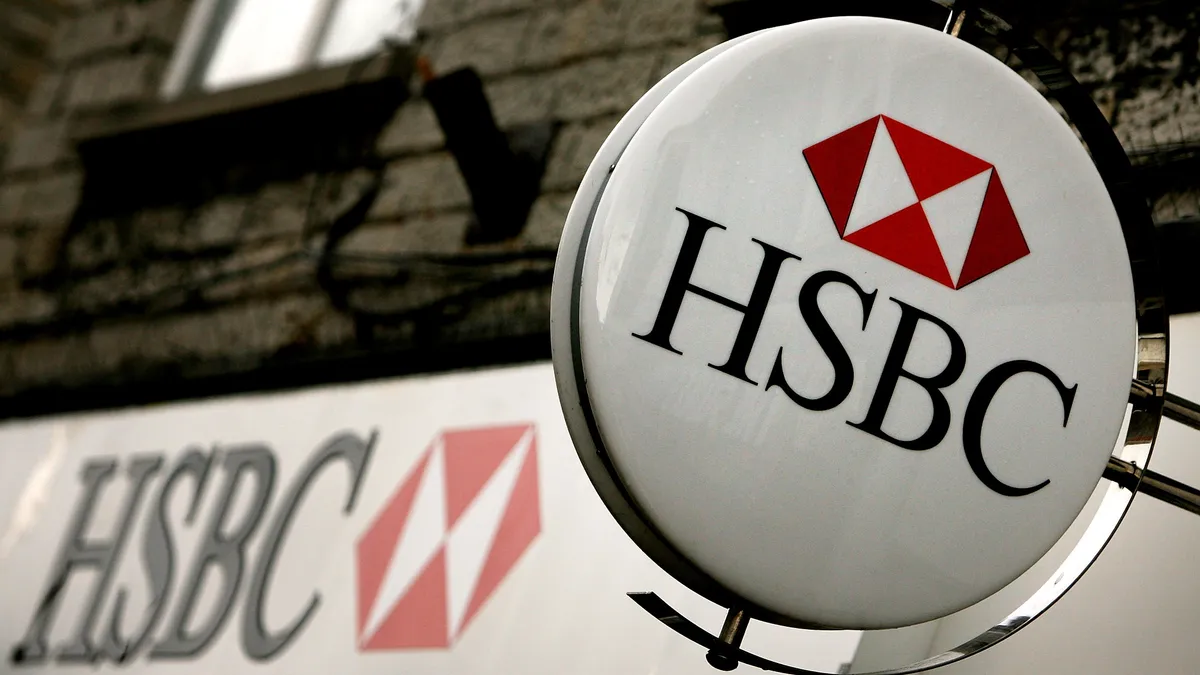Dive Brief:
-
HSBC Holdings, Europe's largest lender, announced pre-tax profits rose 79% from a year ago, to $5.8 billion, in the most recent quarter, making the three months ending March 31 the company's best quarter since the pandemic began.
-
An improved economic outlook allowed the bank to release $400 million in reserves it had kept aside for expected credit losses, MarketWatch reported. In the same quarter last year, it took a $3 billion charge from loan losses.
- “I'm cautiously optimistic [about] the rest of the year,” HSBC group CFO Ewen Stevenson told Bloomberg, though the bank's reported revenue stood at nearly $13 billion, a 5% year-over-year drop, which it said reflected the low interest rate environment.
Dive Insight:
“We had a good start to the year in support of our customers, while achieving materially enhanced returns for our shareholders,” group chief executive Noel Quinn said in a statement. “I am pleased with our revenue and cost performance, but particularly with our significantly lower expected credit losses.”
“We made further progress in reducing both costs and risk-weighted assets, and launched new products and capabilities in areas of strength,” he added.
The bank is also concerned about the emergence of possible new variants and resistance to the existing vaccine programs, Stevenson added. “What really fueled the results this quarter was the success of the vaccine programs and the strong turnaround that they've had on credit,” he said.
The bulk of the bank’s profit comes from its Asian presence, Stevenson said, and most of its growth opportunity will come from Asia, too.
“Shifting three of our four global business chief executives to Hong Kong is a very logical move for us,” he told Bloomberg. “[Patrick Nolan, senior executive vice president and CEO of HSBC Global Banking and Markets] and I are going to continue to be based here in the UK, which is our headquarters, and we will increasingly run the bank as a dual hub model across Hong Kong and London. But definitely for us, shifting more capability to Asia is a clear strategic priority. We think we can get great returns down there.”
Asked how the bank will change course in regards to reduced office space and remote working capabilities, Stevenson said it’s eager to evolve.
“All kinds of changes we're trying to implement across the bank [came from] the opportunity we've had over the last year to experiment with working from home,” he said. “We've committed to get out of 40% of head office space; we expect to get out of about half of that this year.”
Stevenson said the bank “very much” wants to move into a hybrid working environment. “I think we're going to travel a whole lot less; we've basically baked in about half of the cost of travel going forward,” he said.
“By using a lot more video technology, and having people go on fewer longer trips when they do travel, we're seeing a lot less paper,” he said. “We're trying to rebuild the business in a much more sustainable way than we were doing pre-pandemic. I do think there's an amazing array of opportunities for us, both in terms of improving the environment for employees, for improving the digital delivery to customers, but also to improve sustainability."












